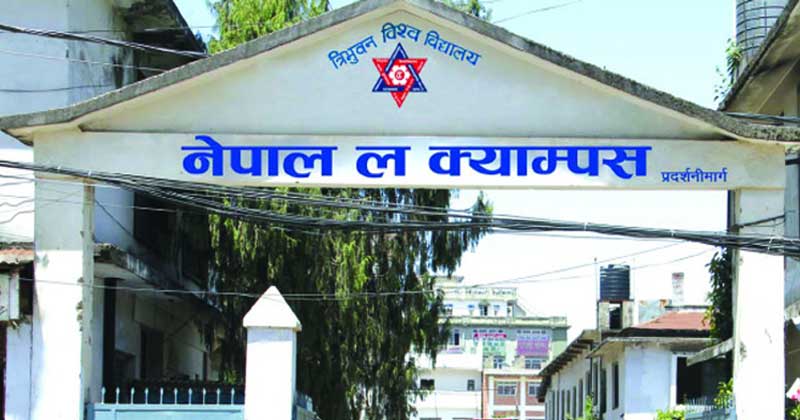
Growing Demand for Law Education at Tribhuvan University
In recent years, the allure of a career in law has significantly heightened among students pursuing higher education. This surge in interest has been notably reflected in the number of students vying for a seat in law programs. Tribhuvan University, recognizing this trend, is taking proactive steps to cater to the educational aspirations of these students across different provinces.
Challenges in Meeting Student Demand
While the enthusiasm for legal studies grows, Tribhuvan University is confronting a daunting challenge. The primary concern revolves around the scarcity of qualified educators to deliver legal education effectively. This deficit is creating a bottleneck for the university, which prides itself on offering specialized law courses.
Overwhelming Application Numbers
The stark contrast between the availability of seats and the number of applicants is alarming. For instance, despite having only 150 spots in the BALLB program, over 1,500 hopefuls have applied. This ratio significantly spikes for the LLB and LLM programs, underlining the fierce competition and limited opportunities for legal aspirants.
Strategic Expansion Plans
With an unwavering commitment to fulfill the educational demand, Tribhuvan University is advancing plans to introduce law programs across its Constituent Campuses in each province. This initiative is pivotal in decentralizing legal education and making it accessible to a broader student population. However, areas like Karnali and Sudurpaschim provinces are still awaiting these educational reforms.
Current State of Law Education in Constituent Campuses
Law education is currently imparted at various Constituent Campuses under Tribhuvan University, such as in Dharan, Rajbiraj, and Butwal. These campuses collectively accommodate over a thousand students in their BALLB and LLB programs. The expansion into new provinces, including Biratnagar and Chitwan, is set to invigorate the educational landscape, sparking excitement among prospective students.
Faculty Shortage - A Hurdle to Quality Education
The expansion, however, brings to light an acute shortage of law teachers. Despite vacant positions, the university has not made significant strides in recruitment. Educational experts argue that the ambition to widen the scope of law programs is untenable without addressing the need for additional faculty. This situation not only hampers the expansion plans but also threatens the quality of legal education provided.
Ensuring Quality Amidst Expansion
The feedback from various stakeholders points to a diminishing quality in legal education delivery, primarily attributed to the faculty shortage. This critical issue suggests that the university must balance its expansion goals with a commitment to maintaining educational quality.
A Balanced Approach Needed
In summary, while Tribhuvan University is making commendable efforts to extend its law programs to meet growing student interest, it is imperative to address the pressing challenge of faculty shortage. Ensuring the recruitment of skilled educators and upholding the standard of legal education are essential steps towards a successful expansion of legal studies throughout the provinces. The university's strategy must reflect a balanced approach that prioritizes both growth and the quality of learning to truly fulfill its mission as a premier institution for legal education.
|
Student Enrollment and Demand:
Capacity and Expansion:
Current Law Teaching Capacities in Other Campuses:
Faculty Shortage:
|


